#lilias craven
Explore tagged Tumblr posts
Text


Mary and Dickon taking pictures in the garden swing, like Lord Archibald Craven and his beloved wife Lady Lilias Craven.
#the secret garden#agnieszka holland#mary lennox#dickon sowerby#lord craven#lilias craven#john lynch#1993
42 notes
·
View notes
Text
revamped! i am like mariah carey defrosting for christmas just with spring
#the secret garden#lilias craven#lily craven#archibald craven#young edwardian lovers who quickly turn tragic and harrowing before a soft and fairy tale-esque novel#difficult vibe to get down to say the least
12 notes
·
View notes
Text
Botanic Tournament : Lilies Bracket !
Round 1 Part B Poll 8
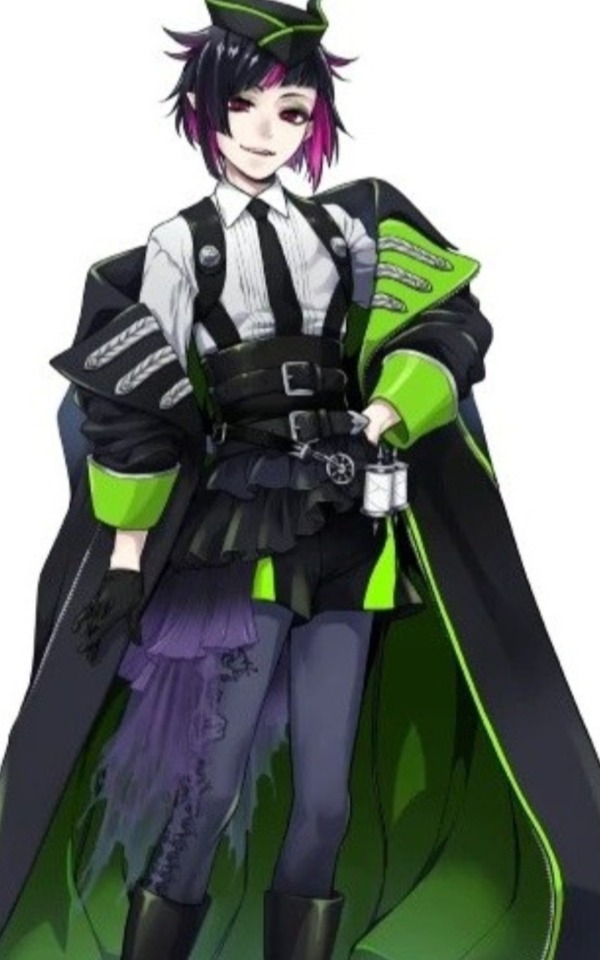
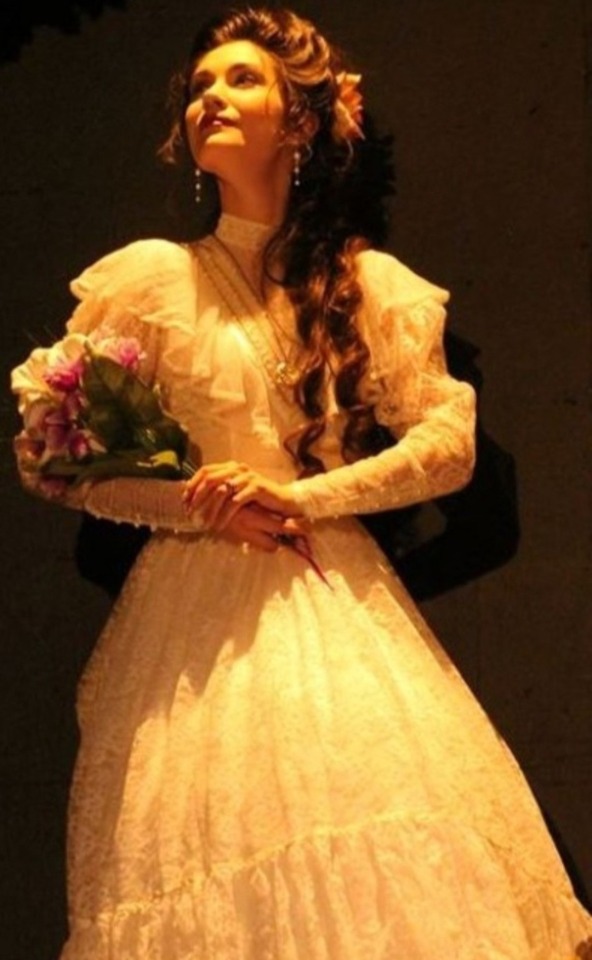
#botanic tournament#tournament polls#lilies bracket#round 1#lilia twisted wonderland#lilia twst#lilia vanrouge#twst#twst lilia#twisted wonderland#general vanrouge#general lilia#lily craven#lilias craven#the secret garden
24 notes
·
View notes
Text
Malleus Facts Part 56: Technology
Malleus says that even he has blind sports in his knowledge, using “modern gadgets” and an example, but he knows that it shouldn’t try to avoid machines forever.
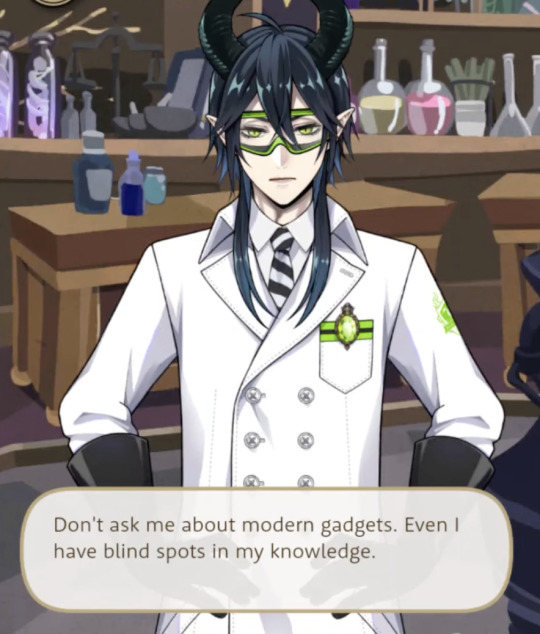
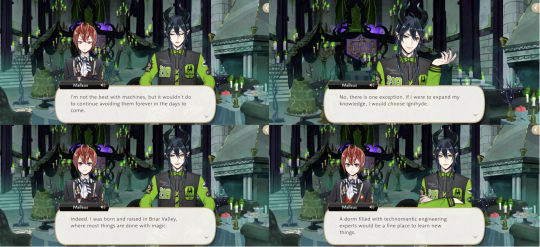
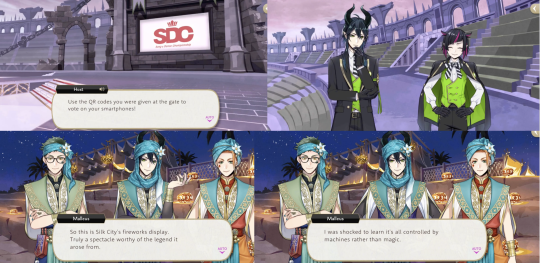
He says that, if he were to transfer dorms, he would choose Ignihyde for the opportunity to learn new things, such as technomantic engineering.
Throughout the game we see Malleus confused by GPS, learn that fireworks and projection mapping are not magic and say he wishes to learn how to use a smartphone to conjure items (online shopping).
Malleus says that, much like magic, he supposes machinery cannot solve everything.
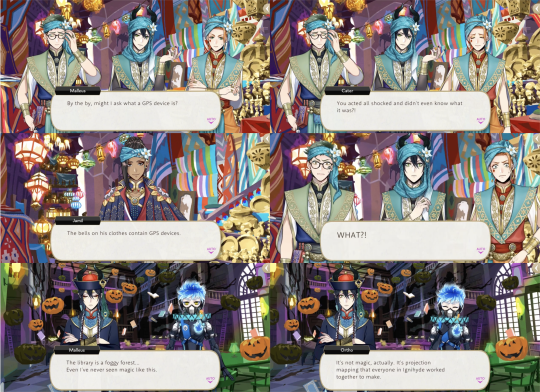

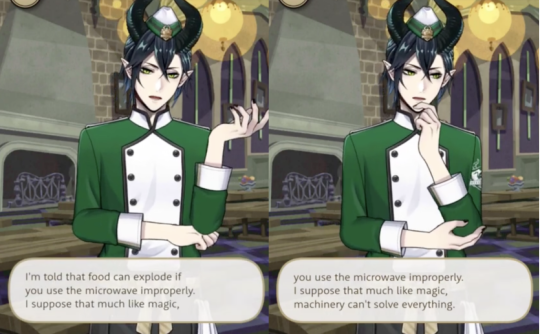
While not stated explicitly it is possible Malleus did not understand how to use the voting system at the VDC: when he and Lilia appear on screen together only one voting sound is played.
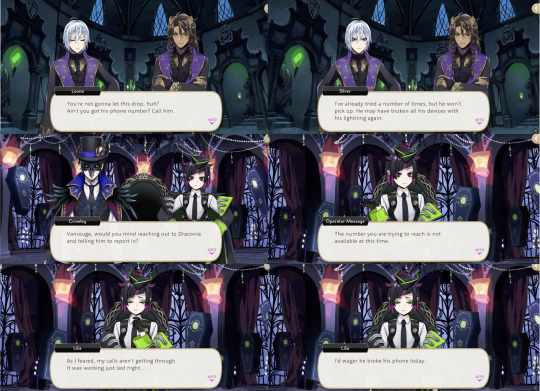
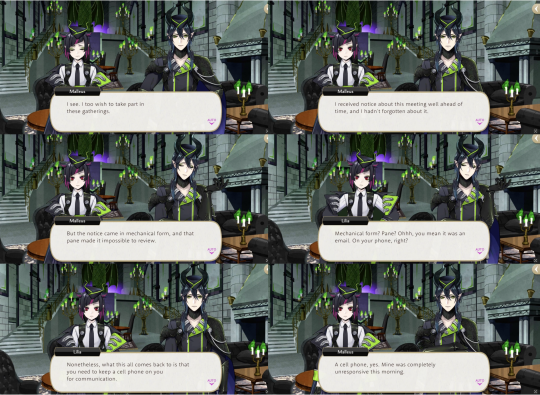
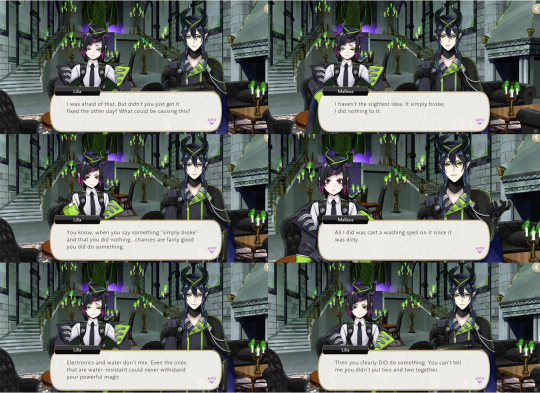
When Leona recommends that Silver call Malleus’ phone in order to find him Silver says that Malleus “may have broken all his devices with his lightning again,” which seems to be a not-uncommon occurrence.
In a vignette Malleuse insists that his phone simply broke on its own and he did nothing to it, but after Lilia presses for details he reveals that he cast a washing spell on it, since it was dirty.
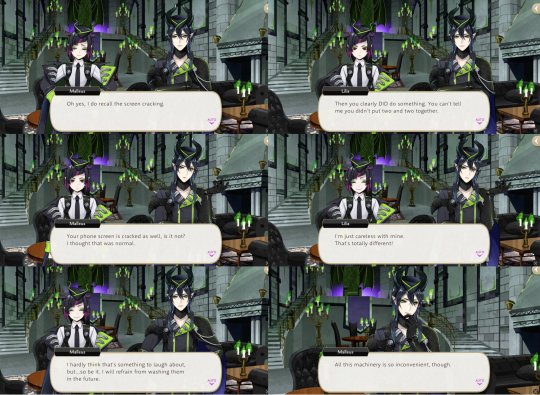
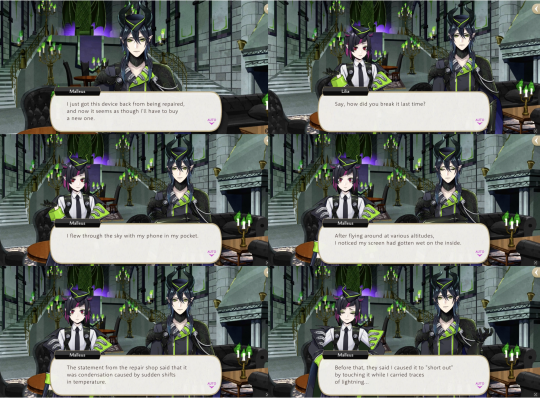
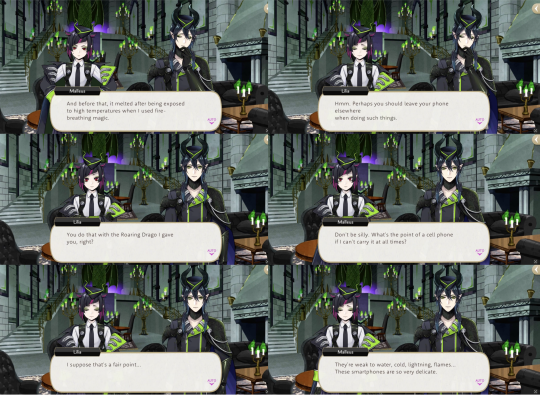
Malleus explains that he broke a previous phone by flying too high and causing condensation with the sudden shifts in temperature, and another phone by touching it while carrying traces of lightning, and another phone by melting it via fire-breathing.
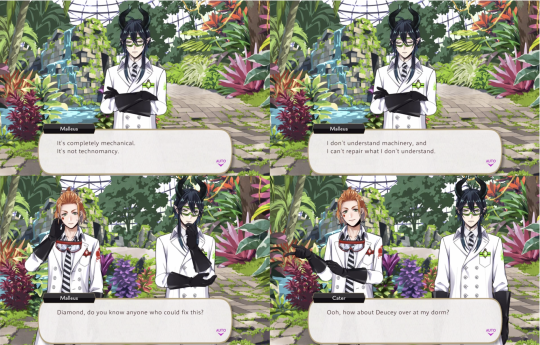
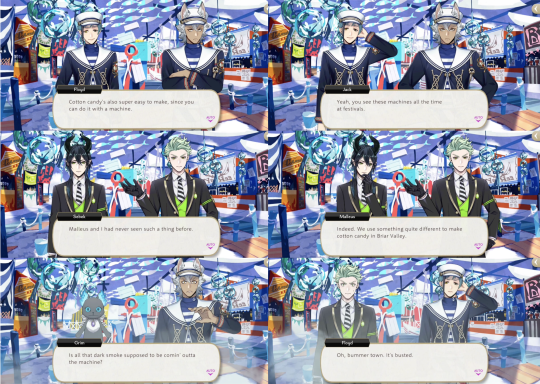
Malleus breaks his tamagotchi by getting it wet in the school’s botanical gardens.
When Floyd breaks their stall’s cotton candy machine, Malleus touches it and causes a sound that Sebek describes as similar to that of an explosion. Sebek declares that neither he nor Malleus “are so craven that (they) require the aid of mechanical contrivances!”
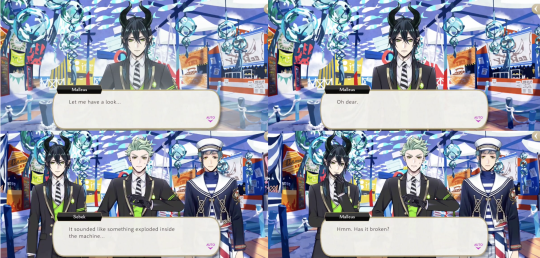
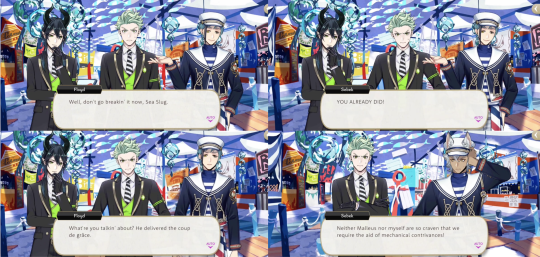
110 notes
·
View notes
Text
Loki x Sigyn - Secret Garden AU
Sigyn and Loki as Lilias Craven and Archibald Craven









#mcu sigyn#justice for sigyn#lady sigyn#sigyn marvel#logyn#loki x sigyn#loki#loki odinson#loki of asgard
18 notes
·
View notes
Text
The Secret Garden
Lamentations
A collection of vignettes offering a look into the 20 stages of grief through Archibald's mourning of Lilias Ship(s): Archibald x Lilias, Neville x Lilias (unrequited), Minor Neville x Rose (ambiguous) Multi-Chapter -- 42k words -- third person trigger warnings: implied/referenced self-harm, suicidal ideation Canon Character Death(s), Canon Parental Neglect, Musical-verse
The Song of the Sea (or the Moors at E'en)
The domesticity of the Craven's when first they were wed Ship(s): Archibald x Lilias; Minor Neville x Mrs. Lennox (implied) One-shot -- <3k-- third person trigger warnings: N/A book-verse
Something New is Blooming
The Cravens host a ball; Lilly has something to tell her husband Ship(s): Archibald x Lilias
One-shot -- 2k words -- third person trigger warnings: N/A Musical-verse
La Ville de l'Amour
Archie and Lilly visit Paris on their wedding tour Ship(s): Archibald x Lilias
One-shot -- 1.5k words -- third person trigger warnings: N/A Musical-verse
6 notes
·
View notes
Text
I've got a theory.
So, you know at the very end of the movie "The Secret Garden" where Mary is talking about how she healed from her trauma and learned to love again? Instead of Mary being the one playing in the water, like we're led to believe, I believe that the woman was instead the spirit of Mary's Aunt Lilias. She died in the garden so it stands to reason that her soul is still inside its walls being nurtured by Mary, Collin and Dickon.


38 notes
·
View notes
Text
lilias craven was the blueprint for all those “flashbacks to the dead mom in a movie” tiktoks
21 notes
·
View notes
Photo



WIP on Dickon and Lilias from “The Secret Garden”! I’m reimagining it set in 1960s England. Hence Dickon’s a hippie, Mary’s an Indian immigrant …which means Lilias and Colin being Indian too. REFERENCE FOR LILLIAS: 
#the secret garden#fanart#frances hodgson burnett#middle grade fiction#middle grade book#children's book#childrens book#lilias craven#dickon sowerby#indian immigrants#hippie#1960s#60s style#my artwork#wip#sketch dump
15 notes
·
View notes
Text



Recently, my little sister Joely and some of my friends were in a production of The Secret Garden. I was in love with the costuming, so I drew a few of them and have plans to draw a couple more.
From left to right, we have Lily, Mary and Dickon.
I used the app SketchClub on my iPad.
30 notes
·
View notes
Link
Hey so the first chapter of The House Upon The Hill Part 3 is up, and I would really appreciate it if you guys would check it out! I know that this isn’t the most popular fandom, but every Kudos and comment helps!
#the secret garden#the secret garden musical#the house upon the hill#there's a girl#neville craven#archibald craven#mary lennox#lilias craven#lily craven#colin craven#fanfiction#series#my post#my fic
5 notes
·
View notes
Text
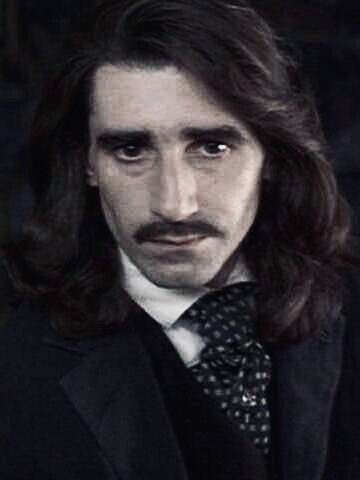
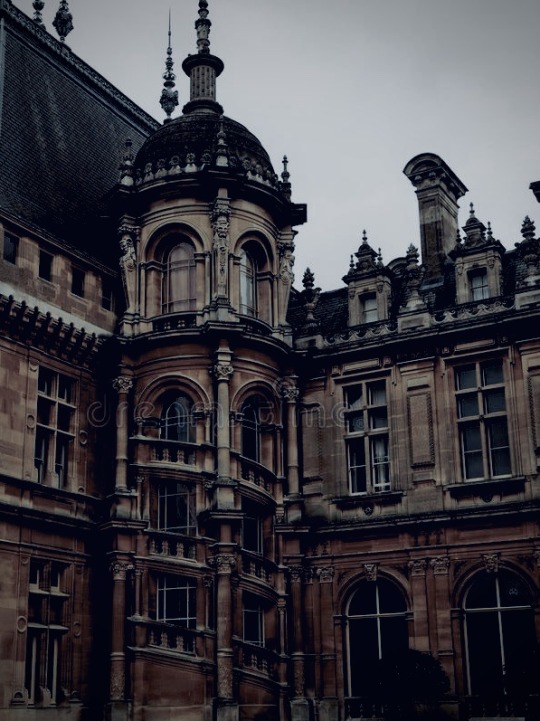
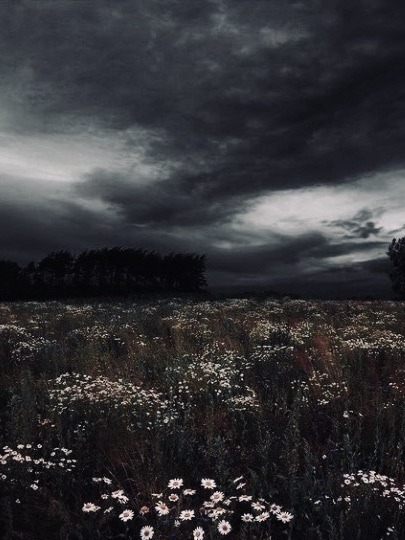
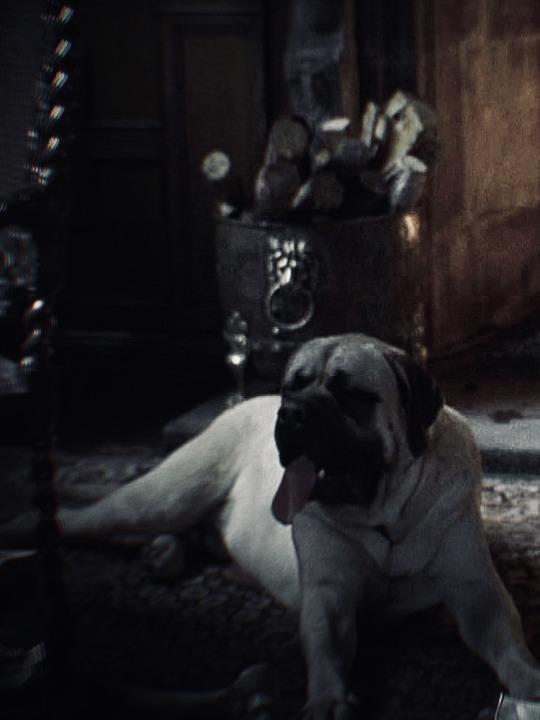
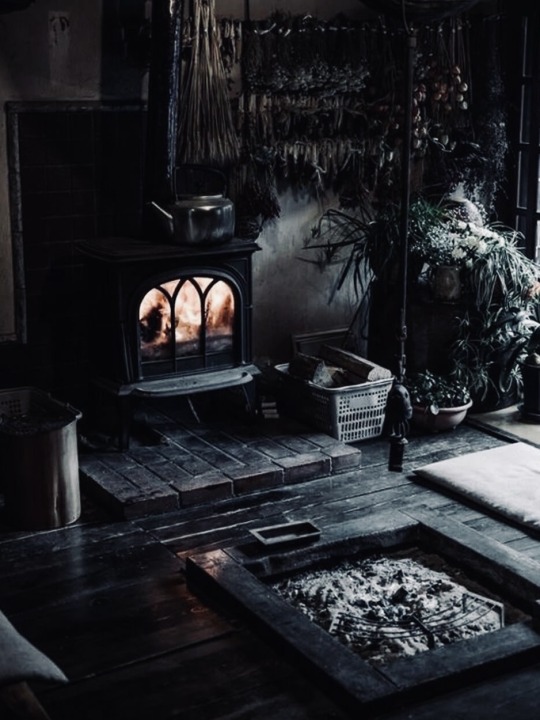
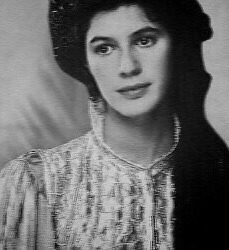
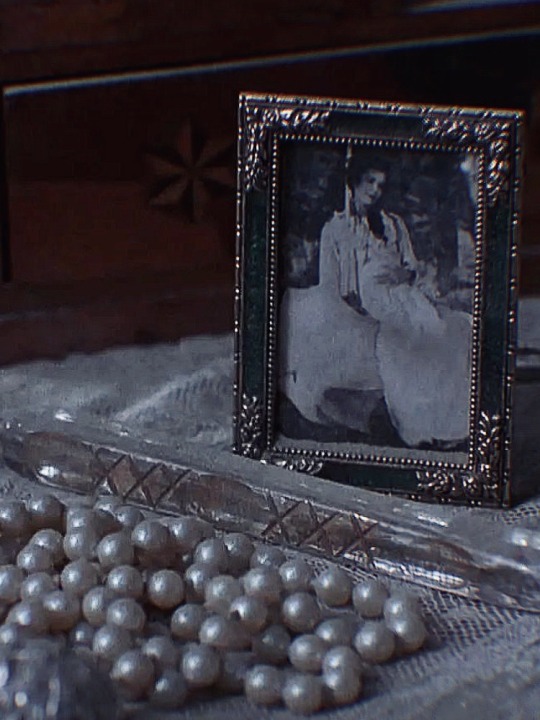
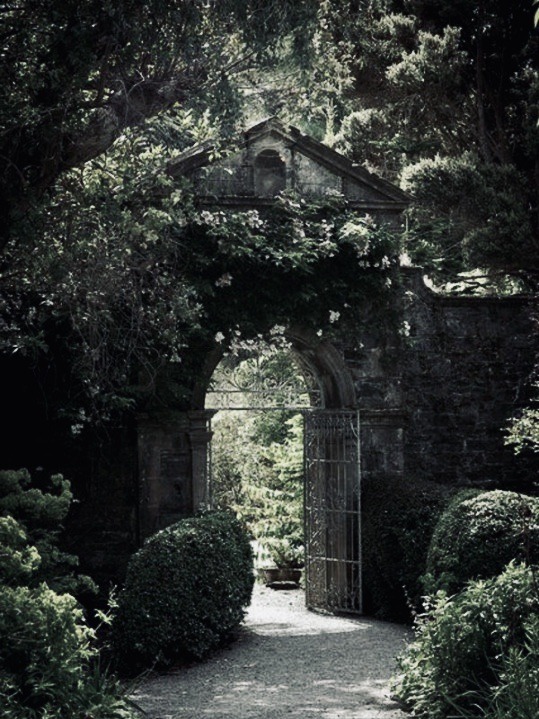
literature moodboard : Lord Archibald Craven (The Secret Garden, F. H. Burnett)
#the secret garden#frances hodgson burnett#lord archibald craven#lord craven#lilias craven#literature moodboard#moodboard
96 notes
·
View notes
Note
Love that you also ship Archibald/Lily, it’s got to be the most obscure ship but I feel it in my bones 😍
LOVE it’s tough being obsessed with obscure half dead haunts the narrative relationships but alas someone must do it 💋💋
#lilias craven#archibald craven#need to post their fancasts so bad#and i got locked out my spotify account HELLO so i cannot update the playlist.. might make a whole new one too silly
8 notes
·
View notes
Text
My Review of The Secret Garden (2020)

Spoilers for The Secret Garden (both the book, and this film), and Jane Eyre by Charlotte Brontë.
I said that I wanted to do some in-depth reviews of the various different adaptations of The Secret Garden (the film versions and other retellings), and I thought it might be fun to work my way (roughly) back in time, beginning with the most recent adaptations, and working my way back in time. I do plan on also reading some of the sequels/retellings/graphic novels that exists as well, but I’m going to start with the film adaptations.
So… I re-watched The Secret Garden (2020) and I have some thoughts.
Before I get into all of my opinions, I’d like to highlight this clip of Mark Kermode talking about the film, I think he hits the nail on the head and is very fair about the film, I agree with him, here’s a link.
There were some things that I liked, which really stood out to me about the film, it is gorgeous, the aesthetics, set design and costumes are all really great, both for the interiors and the exteriors. The film looks beautiful, cinematography and editing were also good, the camera movements feel very dynamic and the editing around many of the more fantastical elements in the film was also clever. Likewise with the performances; nobody here is going to win any acting awards for this film specifically, but none of the performances are bad. There’s an Aurora song in the closing credits. I’m an Aurora fan, so that was nice.
There are things to like here, and I’m sure if I were a child watching this film with no prior knowledge of The Secret Garden, that I would have enjoyed it well enough, though I don’t think that it would have stuck with me in the way that The Secret Garden has stuck with me since I was a child.
The films has made A LOT of changes to the source material. I said in my review of the 2015 adaptation of Heidi that I’m not of the opinion that absolute fidelity to the source materials is necessarily the best way to adapt a novel to the screen. There are plenty of adaptations that I like which deviate significantly from their source material, either in tone or plot, Bladerunner and The Shining are both good examples of this, and in my Heidi review I also mentioned Anne with an E, which alters the tone of the original Anne of Green Gables to great effect. So the fact that this adaptation of the story makes changes to the original is not a great sin in itself, I simply feel that a lot of the changes that they do make are underthought and, in some cases, confusing.
For example, the events of the book have been moved forward in time, taking place in 1947, rather than the Edwardian Era. This could be an interesting change, as 1947 was the year that India gained its independence from Great Britain, and so could be used to serve as a commentary on the colonialism that is present in the book. It doesn’t though. The updated setting adds nothing to the story. @marysfoxmask made a really interesting post about this which I’ll link here, and I entirely agree, and I don’t think I need to add anymore commentary on the topic.
@isfjmel-phleg also wrote an interesting post unpacking her thoughts about this adaption and I agree with many of her points too. Here’s a snippet from that post:
Making Mrs. Lennox and Mrs. Craven sisters/twins is straight out of the musical and 1993 film, and it’s overdone. Lilias was Mary’s father’s sister, which actually is more thematically appropriate (of course she’s unrelated to the woman who’s the book’s worst example of parenting), and I’d like to see a version where this is the case. What if it’s Mary’s father who’s distant from grief over losing a sibling? There’s room in the text for that interpretation; he’s said to be “always busy and ill.”
And I completely agree with that as well. Mary’s character arc shifting from a story about a neglected and emotionally stunted child finding spiritual and emotional growth through the cultivation of a garden, into the story of a child who needs to reconcile with her dead, neglectful mother, seems like an extremely odd interpretation to me. Both Mary and Colin’s parents get way too much focus here and are framed much more sympathetically (they even show up as ghosts), to the point where the relationship between the two sisters feels like a more significant presence than the relationship between Mary and Colin. As a consequence of giving the parents more emphasis, there are a number of characters from the book whose roles are reduced, particularly Ben, who is not present in the film at all, and Dickon, whose role in the story is greatly diminished, we don’t even meet him until 50 minutes into a film - and we meet Colin at 25 minutes in (which annoys me personally, since Dickon is my favourite character in the book). All of this leaves Dickon feeling like a mostly superfluous addition to the story, which is a shame because I know Amir Wilson can turn in a good performance when he needs to.
One thing that Mark Kermode talked about in the video that I linked above is the framing of the ‘magic’ in the story. Here’s a quote from that:
“When we find the magical garden itself (…) what you get more of is the sense that this is the garden of [Mary’s] imagination, the garden of her dreams, and there is a magical element, which is played the up […]. What you lose is the central theme that is in the novel which is that toiling in the garden, it’s working in the garden, that makes the garden have it’s restorative powers.”
Here the ‘magic’ is much more literal, treated more like a mystical forest or fantasy realm (like Narnia) rather than a place that the characters might care for. This, to me, is the fundamental most flaw of the film, as it just completely disregards the themes of its source material, opting instead for a story that is significantly more escapist and fantastical in tone, rather than the grounded story of the novel.
Okay, heading into very spoiler-y territory now, so if you don’t want to know what happens in the end of the film, stop reading now. I’m also going to spoil the ending of Jane Eyre, so be aware of that.
Final warning.
So, in this version of the story, the house burns down at the end. On a level, I do understand why this change was made, it gives the third act a greater sense of danger and ups the stakes quite a lot. I very firmly believe that Frances Hodgson Burnett was heavily influenced by the Brontë sisters when writing The Secret Garden, there are a number of similarities between both Wuthering Heights and Jane Eyre, and I plan on writing a whole post about that at some point. For now, we’re just going to focus on Jane Eyre. Jane, like Mary, is an orphan, who goes to live at Thornfield Hall, a vast house in the moors. During her stay, she frequently hears mysterious wailing and crying in the night. In The Secret Garden, this is revealed to be coming from Mary’s sick cousin Colin, while in Jane Eyre, it is revealed to be a woman named Bertha, who is the wife of the master of the house, Mr Rochester, and who is plagued by violent insanity. At the climax of Jane Eyre, Bertha sets fire to Thornfield Hall, burning the house to the ground. I am almost 100% certain, that Misselthwaite being set on fire in this adaptation, is a nod to the influence of Jane Eyre on the original book – in this case, it is Mr Craven who sets fire to his own house, in a fit of drunken confusion and grief. As an element of the story, I don’t hate it, but I don’t think it was set up very well either. It just kind of happens randomly. Fire isn’t established within the narrative at all, it’s not set up, and it’s not part of a motif either. It’s Chekov’s gun, but you never see the gun before it goes off. In Jane Eyre it works since fire is a frequent motif within the story, often used as a metaphor for Jane herself, as the narrative repeatedly associates her with images of fire, brightness, and warmth. It could have worked here, but it mostly just feels random and not very well thought out.
With all of these underthought changes, I think that the thing this film suffers most from is the fact that it is an adaptation of The Secret Garden. The film disregards many elements the plot, themes, setting and characters of the original book, but fails to truly divorce itself from the source material. I think that the resulting film would have been better if they had simply disregarded the book entirely and instead used the story as inspiration to create something new and original. But that’s just my opinion.
I’m sure that I’ll have more to say about this film in the future, but I’ll sign off with another quote from Mark Kermode’s review, which sums up a lot of my feelings quite well:
“It’s a strange mix. It’s perfectly fine. I don’t think it’s one of the classic, timeless adaptations, but it is a story that will always work if you treat it with a certain degree of respect […]. It’s not great, but it’s not bad, it’s a perfectly workable adaptation of something which I’ve seen adapted better.”
I couldn’t agree more.
26 notes
·
View notes
Text
“the secret garden” (2020) review
(warning: spoilers!)
just watched the latest adaptation again! i wanted to see it a second time to really get my thoughts and feelings together. and, while i think it was a good effort, ultimately i was disappointed. my instincts when i first saw the trailer were more or less correct—really vibrant, flashy visuals ultimately subtract from the low-key nature of the book. when adapting a story about realizing the magic in mundanity, realizing the magic inherent to the turning of the seasons and the growing of plants that we usually take for granted, it’s monumentally better to prioritize realism over fantasy.
mary’s character was served the best by the new film, though sadly that isn’t saying too much. while i understood that this mary would be different from her book counterpart, i definitely felt the original’s absence more than i would have liked. the mary of this film is just too well-adjusted, to the point where her arc is less about a spiritually stunted, completely neglected child becoming healthy and whole through the power of nature and socialization (as it is in the novel) and more about a vaguely troubled child apologizing to the specter of her late mother for feeling badly about being neglected, which is essentially the opposite of what burnett was getting at.
was anyone pining for a mrs. lennox redemption story? the same woman who, as per the book, never wanted a child and only cared about going to parties? i’ll forever be baffled by people being more invested in the adults and their ponderous backstories rather than the emotional development of the child protagonists; this film seems a lot more interested in the impact of the deaths of mary and colin’s mothers, to a bizarre degree. “grace” craven (really? was “lilias” not good enough?) and her sister (this and the 1993 film both depart from the book, where mary’s father is related to lilias, in favor of making mrs. lennox and mrs. craven twins—a decision i’m confused by in terms of thematic relevance on both accounts) are never characterized more than being essentially the angels of misselthwaite. they float by, laughing gaily, dressed in white, at points during the film. they are bittersweet representations of the idealized past and, at one point, guardians of their loved ones left behind.
i’ve never enjoyed the romanticization of lilias craven in any adaptation. mary calls the fairytale trope of beautiful princesses falling asleep in a garden for a hundred years stupid in the novel; and what is lilias but a princess eternally sleeping in her beloved garden? she’s beautiful and innocent and good and thoroughly uninteresting. she’s the angel of the house, embarrassingly dated compared to her imperfect, misfit niece, who is coming awake and growing healthy while lilias is frozen in amber, a beautiful idealized figure even in death. the interest in her in this film, the broadway musical—and even the 1993 movie, to an extent—seems to completely contradict the point of the novel, fetishizing the past and resisting lending enough focus to the events of the present. mary is a spunky, interesting, flawed heroine who doesn’t need to share the spotlight with any angels of the manor; the story of the secret garden is one about healing from trauma, not wallowing in it.
that isn’t even touching on the decision to have mrs. lennox be an apparently good person brought low by depression following her beloved twin’s death. i find this adaptive choice to be positively loathsome. mrs. lennox, as a character, is a bad mother and a silly, foolish person, point blank, period. she hands baby mary off to an ayah the moment she’s born, keeps her isolated and locked up, and insists that the ayah keep mary quiet lest “the mem sahib” become angry. when given the chance of evacuating due to the cholera epidemic raging, she instead stays in order to go to a party. she’s a frivolous character whose superficial prioritization of amusement leads directly to her death. she doesn’t need a sympathetic reason to be neglectful to mary; she doesn’t need to be sympathetic at all. the decision to make that a priority in this latest adaptation hurts mary’s character. when she tells her uncle that it was too hot to play in india (a sentiment taken directly from the novel), it doesn’t ring true—in the multiple flashbacks to india, mary plays a lot with her loving father (her ayah, while mentioned, is rarely seen; what we see of india is populated entirely by privileged whites), and is shown to enjoy herself tremendously until she glimpses her mother wilting sadly on a cushion or something. it undermines what little development mary has in the film.
the prioritization of mary and colin's mothers in general make the film feel weirdly overstuffed while giving little weight/emphasis to the events present in the source material. how many lines did major secondary characters like dickon or martha have, for example, compared to all the waffling mary and colin do about whether or not their mothers loved them and whether mary really killed her mother or not they, at the end of the day, really knew their parents, et cetera, et cetera? it��s a frustratingly shallow addition to the original story, devoid of thematic relevance.
speaking of shallow additions…
hector, a stray dog, assumes the role of the book’s robin (bizarre, considering the robin is also present), being the friendly animal character that leads mary to the secret garden. i’m not sure why the decision to add hector was made; he’s also the catalyst for mary leading dickon to the garden, while she needed no such thing in the book. did marc munden feel kids wouldn’t sympathize so readily with mary befriending a bird, despite the success of all the other adaptations saying otherwise? hector gets a lot of attention in the film, which is frustrating, because so much of the movie is filled with strange original additions that say little.
despite the clear talent of the actors and the vividness of the visuals, the changes to the story are devoid of purpose. the time period, for instance—why 1947? why have mary’s orphaning take place during the partition of india when her parents die of cholera anyway? why make martha and dickon black when the script pussyfoots around it, refusing to interact with that aspect of their characters in the same way burnett directly (if somewhat tactlessly) interacts with their poverty? save for vague, implicatory dialogue, like the threat of having poor dickon whipped if he’s sighted in misselthwaite by mrs. medlock, the racism of the time period isn’t featured at all. martha is stripped of any characterization at all, her cheerfulness diluted to the point of being nonexistent once mary gets a bit snappy. perhaps the decision to mute martha’s characterization was made out of fear of the implications of a black maid being cheerfully nurturing to a white girl despite her cruelty (invoking the mammy stereotype)—but if so, why make the decision to change martha’s race at all?
the structure of the film is odd, too. mary meets colin early on (in the book, mary explicitly states that she’d hate the imperious and bratty colin if she hadn’t met kindly martha or dickon first) and doesn’t meet dickon until halfway through. why? it directly contradicts the novel for no particular reason; it doesn’t help that dickon is so underused that he’s virtually a non-entity, his three whole canonical character traits (poor! happy! in tune with nature!) watered down to nothing. In this film, dickon isn’t particularly happy (he’s just as solemn and damaged as the other two kids, though in a more subdued way, as his father has died in the war—it’s frustrating that his rich white peers get to air their mommy issues at length while poor dickon’s grief is only glanced at) and his skill with animals is only vaguely alluded to. his skill with plants, negated by the apparent flourishing of the secret garden even when no one’s looking after it, is only brought up when, in one scene taking place in the garden, colin asks dickon what certain plants are.
it’s also frustrating that dickon, the only poor and nonwhite character in the trio, is the only one doing only actual gardening work while his friends sit around and talk about their trauma. the whole time, i wanted to urge mary to stop indulging in her overactive imagination for once and pull some weeds or something. putting in the work to make her secret garden flourish is an important part of her growth in the book, but that’s entirely absent here in favor of the occasional frolic. dickon even eventually whittles colin a cane he uses to eventually stumble into his father’s arms. this gesture should be touching and evident of the strength of the boys’ (offscreen) bond but instead is only another example of dickon selflessly and thoughtlessly serving his betters, making the classist implications of burnett’s original story more obviously troubling by adding race into the mix. it’s also bizarre that mary can cartwheel but dickon can’t, given how physically adept he was in the book. poor dickon is sapped of all his accomplishments, it seems. his character is completely glossed over, though i do like his feistiness in his meeting with mary, with him coming out of the mist and sharply remarking that martha loves him much more than she likes her. even more sadly, unlike his ‘93 counterpart, he doesn’t even get to eat a worm.
mrs. medlock is one-notedly antagonistic, being hard-nosed and strict and disapproving of mary’s wild ways—which is also disappointing. she’s not outright villainous, but she’s denied the shades of sympathy allowed her by the original novel, where she was a straightforward, unsentimental woman working a thankless job trying to satisfy and care for a tyrannical little hypochondriac. she’s also probably the closest thing we have in the movie to a xenophobe/racist, frequently making coded comments about the primitive and savage nature of the english colonies in india where mary grew up, but that’s only ever hinted at without being called out by mary or anyone else. there’s also an odd moment at the beginning of the film where mrs. medlock states the book-accurate sentiment that nothing lives on the moor but wild ponies and sheep, yet mary sees in the mist multiple shadowy figures with what i think are wheelbarrows and gardening tools (it’s a bit hard to tell with all the mist). this probably is meant to clue mary in to medlock’s classism, foreshadowing that mary will be given insight to the outdoors and different people in a way medlock could never be, changing her views of the class hierarchy she’s been inundated by—i’m not sure what else can be gleaned by the contradiction of medlock’s words and what mary sees but that—but nothing is done with it. we never see anyone on the moor but dickon throughout the rest of the movie. it’s another missed opportunity. maybe it’s meant to set up that there are poachers on the moor who set traps, like the one hector is hurt by? after seeing the movie twice, i’m still not sure what the purpose of that imagery was.
there are parts of the film i enjoyed! all the children do wonderfully in their roles (amir wilson does well with what frustratingly little he has), and i enjoyed this film’s characterization of colin as somewhat stiff, with a practiced, affected way of speaking that subtly indicates that he’s spent more time with books than with people. it makes a nice contrast to mary’s plainspokenness as a (relatively classless) orphan and dickon’s “rough” (lower-class) yorkshire accent, showing off his education and status as an upper-class boy.
the scene just before mary shows colin the tree his mother died beneath, when colin asks dickon about the names of flowers, is very sweet and book-accurate; i especially appreciate the nod to the kids’ book mastery of yorkshire, with colin mimicking dickon’s speech and noting that the names of the flowers sound better in his accent.
i also loved him calling dickon handsome. it is socially awkward? yes. does it make sense for colin to be socially awkward? also yes. and it’s adorable and book-accurate, in my opinion; if dickon weren’t so homely in the book, i imagine colin would call him handsome there, too. and mary proudly stating that dickon can whistle, as well, is lovely.
similarly, mary and dickon teaching colin to swim is very sweet—while i found most of the garden’s cgi magic wholly dispensable, i did enjoy the plants shivering along with colin. that sort of playfulness felt very attuned to the innocence of the book.
edan hayhurst does a wonderful job playing colin haughty and upset and an equally lovely job playing colin giddy and happy—if only he’d been allowed to really show off his screaming in a proper adaptation of his hysterics, instead of the pale imitation we got in the film!
it’s funny to note how much these kids get enjoyment out of pretending to be dogs. mary barks at hector when she first makes friends with him, pretends to be a yorkshire terrier with dickon when hector gets well in the garden, all the kids start barking when playing together, mary recites in a letter that colin pretended to be a dog all day...these kids sure love to bark. it’s not a bad thing, necessarily, just funny. why the dog obsession, marc munden? though i like the idea of them pretending to be animals (the masks they wear at one point are lovely), dogs feel a very typical choice. still, i can’t help but get enjoyment out of the kids playing together, though these moments are sadly brief.
i also really enjoyed all of mary’s outfits. they were adorable. if only we could have gotten more interactions between the children! part of the beauty of the second half of the novel is just watching the kids be kids in the garden; we rarely get that in all of the adaptations, of course, but in this one i was particularly sorrowful, given all the new directions the story went and how none of them directly impacted the children’s friendship with each other. there wasn’t even the mild jealousy colin has over mary spending more time with dickon than she is with him, which is present in most of the films. it’s a real shame; colin doesn’t even know dickon exists until he meets him, in a hurried scene that doesn’t remotely convey the sweetness of their meeting in the novel. the movie flits over all the book’s little idyllic joys in favor of its own original drama (which is not nearly as compelling as the movie thinks it is).
i did also enjoy the ending scene, with the kids swimming together, and mary attempting to tell a story with colin and dickon interrupting. it’s nice to see an ending to this story that doesn’t follow the book, which forgets mary and dickon in favor of colin. i think ending with the kids playing happy and whole in the garden is much more representative of the book’s charms. and the scene where mary and dickon first enter misselthwaite and are giving all-clear signs to one another as they go is fun, too.
i also enjoyed the set design, including all the green present in misselthwaite’s decor. i loved the high ceilings and the bareness of mary’s bedroom. poor colin still didn’t have any proper pajamas, reduced to wearing a white tank top for some reason, though i liked his goofy little hat that he wears when going outdoors. i wish we got to spend more time in colin’s room, and i wish the color saturation had been toned down a little just so we could get a better look at everything. all the insistent gloomy blues felt a bit overbearing.
i love the opening credits, though, and “the secret garden” slowly appearing in the title screen. the music and the soft green of the trees against the words really conjure up the novel’s near-pagan melancholy and mystery.
the less said about the third act climax of misselthwaite burning down, the better. it’s unneeded and resolves a film-only subplot about mary’s mother that didn’t need to be there in the first place. i think it also unfairly paints misselthwaite as a cursed, doomed place that can only benefit its inhabitants by being destroyed, which is unfortunate. misselthwaite wasn’t the problem, its people was, and they only thought misselthwaite was gloomy because they’d made it so. if they’d followed the teachings of burnett’s book, the one they were adapting, and thought a little more positively about it, then maybe they’d find it wasn’t such a terrible place to be. but, then, i guess we wouldn’t have the third act climax to artificially ramp up the stakes. how sad.
i could say more, but i’ll stop for now. i appreciate the effort, like i said, but i can’t help but feel this missed the mark.
#the secret garden#the secret garden 2020#frances hodgson burnett#movie review#children's classics#classic literature
23 notes
·
View notes
Text
Catching Archibald Cravens Eye prt1:
You're a young-24 year old-maid employed under Medlock. Being new to the position and Miselthwaite manor, you're still learning the ropes and how to navigate the maze-like halls and secret passageways.
When you first get introduced to Lord Craven, it's not under good circumstances. You are sent to him because Medlock complained about your eccentric personality and low station as the daughter of a farmer. Thinking that you are an embarrassment to Miselthwaite, she has requested that she be allowed to fire you. Embarrassed, confused and scared, You don't dare meet the Lord's eyes.
When Archibald sees you standing in his office with downcast eyes, red checks and unbound, wild blonde hair, he's enamored immediately. He feels bad about finding your nervousness endearing, but he can't really help himself by staring openly at you because you remind him of a ray of sunshine standing in his dark office. You were distracting when you refused to look him in the eyes but when your own emerald green ones locked with his and your sweet voice filled the room, he was lost. Feeling guilty over his affections and how easily he forgot his dear Lilias, he dismisses you abruptly and later tells Medlock not to bother him again about you.
If anyone notices how he always asks specifically for you from that point on to be the one to serve his food, tidy up his office or help feed his dogs, they don't mention it.
11 notes
·
View notes